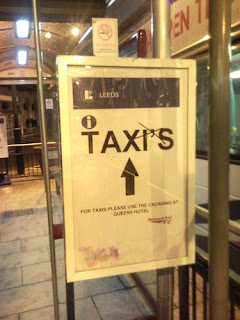Well, no, German words don't have sex, but the nouns do have gender. What does that mean, exactly?
In English, our nouns don't have gender, so this isn't really a problem. But it is a problem for people learning languages like Spanish or German, and it's something that I personally still have problems with in both of those languages.
Spanish is easier than German in this respect. For example, if a noun ends in the letter "o" in Spanish, like muchacho, libro, or carro, the word is usually masculine. Similarly, if it ends in the letter "a," as in casa, puerta, or chica, it's usually feminine. There are a few exceptions (like la mano, el idioma, or el planeta), and there are also nouns that don't end in -o or -a, which can cause problems. For some reason, I always forget if words like corazón (heart) and amor (love) are masculine or feminine, but generally it's not too difficult to just look in a dictionary or ask someone.
German is a lot more difficult, though.
German has three genders, which a lot of people joke about. There is masculine, feminine, and what's usually called "neuter" or "neutral" in English. For some words, it's easy to determine if a word is masculine or feminine. For example, der Mann (the man) is masculine, and die Frau (the woman) is feminine. These make sense, since the noun gender matches the gender in real life. But there are definitely some weird ones, like das Mädchen (the girl); why is a girl neutral, while a boy (der Junge) isn't? And why do the words seem to end in all sorts of different letters? Isn't there a system?
 |
| In the 1990s the musician Prince changed his name to this symbol. Maybe he was just trying to tell us that he's German. (Image Credit) |
Not especially. There are some common patterns to German noun gender, and I'll include links to a site that's been highlighting those recently. But the sad truth is that if you are learning German, you simply have to learn the gender of every new noun when you learn vocabulary. This gender also affects adjectives; to compare with Spanish, you'd say "la casa blanca," not "la casa blanco," since blanca (white) needs to be feminine, since casa (house) is feminine. German is the same way, but it's more complicated, since the adjective endings change not only based on gender, but also depending on whether the noun is the subject, object, indirect object, or possessive actor in a sentence.
I won't go into much more detail here today, since other blogs focus a lot more on this (and most of my readers are here for English tips, not to learn about why German nouns are so depressing). If you are learning German, though, you should check out the Transparent Language German Blog. It's generally got good language and cultural information, and they've recently been doing a series on tips and patterns for determining German noun gender. At the moment they're on part 1 of the feminine nouns, but they've already posted a four-part series on German masculine nouns (click here for parts 1, 2, 3, and 4). It's got some really good information, so check it out!
Thanks for reading, and have a great weekend!


